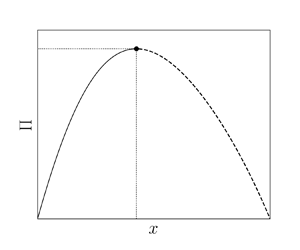Article contents
Viscous effects on real gases in quasi-one-dimensional supersonic convergent divergent nozzle flows
Published online by Cambridge University Press: 03 November 2022
Abstract

Viscous effects on an ideal gas flow in a supersonic convergent–divergent nozzle are a well-studied subject in classical gas dynamics. However, the ideal assumption fails on fluids that exhibit complex behaviours such as near-critical-region and non-ideal dense vapours. Under those conditions, a realistic equation of state (EOS) plays a vital role for a precise and realistic computation. This work examines the problem for solving the quasi-one-dimensional viscous compressible flow using a realistic EOS. The governing equations are discretised and solved using the fourth-order Runge–Kutta method coupled with a state-of-the-art EOS to calculate the thermodynamic properties. The role of the Grüneisen parameter along with viscous and real gas effects and their influence on the sonic point formation are discussed. The study shows that the flow may not achieve the supersonic regime for any pressure ratio depending on the combination of that parameter and the normalised friction factor. In addition, the analysis yields the discharge coefficient and the isentropic nozzle efficiency, which may achieve maximum values as a function of the stagnation conditions. Finally, the study also evaluates the formation and intensity of normal shock waves by using the Rankine–Hugoniot relations, which now depend on the real gas and viscous effects in opposition to the inviscid solution. Moreover, the methodology used captures the sonic point and shock wave position by a space marching algorithm using the Brent method for scalar minimisation. Experimental data available in the open literature corroborate the approach.
- Type
- JFM Papers
- Information
- Copyright
- © The Author(s), 2022. Published by Cambridge University Press
References
- 5
- Cited by



